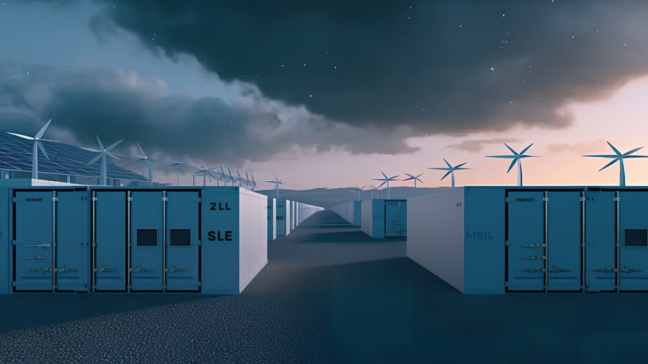
Sep . 20, 2023 21:34 Back to list
DESS Market Is Anticipated to Reach a Valuation of US$ 10.6 billion by 2032
The valuation of the globally distributed energy storage system market has reached US$ 4.2 billion in 2022 and is expected to increase rapidly at a CAGR of 9.6% to end up at US$ 10.6 billion by 2032. Sales of distributed energy storage systems accounted for around 12% share of the global energy storage system market at the end of 2021.
The Distributed Energy Storage System (DESS) market is experiencing robust growth and transformation as the global energy landscape shifts towards sustainability, decentralization, and improved grid resilience. DESS comprises a network of small-scale energy storage systems deployed closer to end-users, enabling better management of energy supply and demand, integration of renewable energy sources, and enhanced grid stability.

Distributed Energy Storage Systems (DESS) are a vital component of the evolving energy ecosystem, allowing for the efficient capture and utilization of surplus energy, especially from renewable sources like solar and wind. DESS can be deployed at various scales, including residential, commercial, and industrial, enabling consumers to optimize energy consumption, reduce electricity costs, and contribute to grid stability. The market encompasses a wide range of energy storage technologies, including lithium-ion batteries, flow batteries, and advanced energy management systems.

Current Industry News and Trends
Grid Integration and Demand Response: DESS plays a crucial role in grid integration and demand response programs. Utilities and grid operators are increasingly utilizing distributed energy storage to manage peak demand, enhance grid reliability, and integrate intermittent renewable energy sources more effectively. This trend is vital for achieving grid resilience and sustainability goals.
Decentralization of Energy: DESS aligns with the broader trend of energy decentralization, allowing consumers to generate, store, and consume their electricity locally. This shift reduces transmission losses, enhances energy security, and empowers consumers to take greater control over their energy usage.
Renewable Energy Integration: DESS facilitates the integration of renewable energy sources, such as solar and wind, by storing excess energy during periods of high generation and releasing it during times of low generation or high demand. This capability enhances the reliability and stability of renewable energy systems.
Energy Transition Initiatives: Many governments and regions are launching initiatives to accelerate the transition to clean energy. DESS is a critical component of these initiatives, supporting the expansion of renewable energy capacity and reducing greenhouse gas emissions.
This article is extracted from EIN Presswire and will be removed if infringing.
-
Stackable Battery System: Revolutionizing C&I Energy Storage with Suzhou ACDC
NewsJul.21,2025
-
Revolutionizing EV Charging with Suzhou DC Quick Charging Stations Solutions
NewsJul.21,2025
-
Revolutionize Your Power Needs with Suzhou ACDC's Portable Power Station Solutions
NewsJul.21,2025
-
Outdoor Integrated Temperature Control Cabinet: Elevating Energy Storage Cabinet Efficiency
NewsJul.21,2025
-
Container Type Energy Storage System: Revolutionizing Energy Storage with Stackable Battery Solutions
NewsJul.21,2025
-
Advanced Self-Cooling Energy Storage Cabinet Solutions
NewsJul.21,2025























